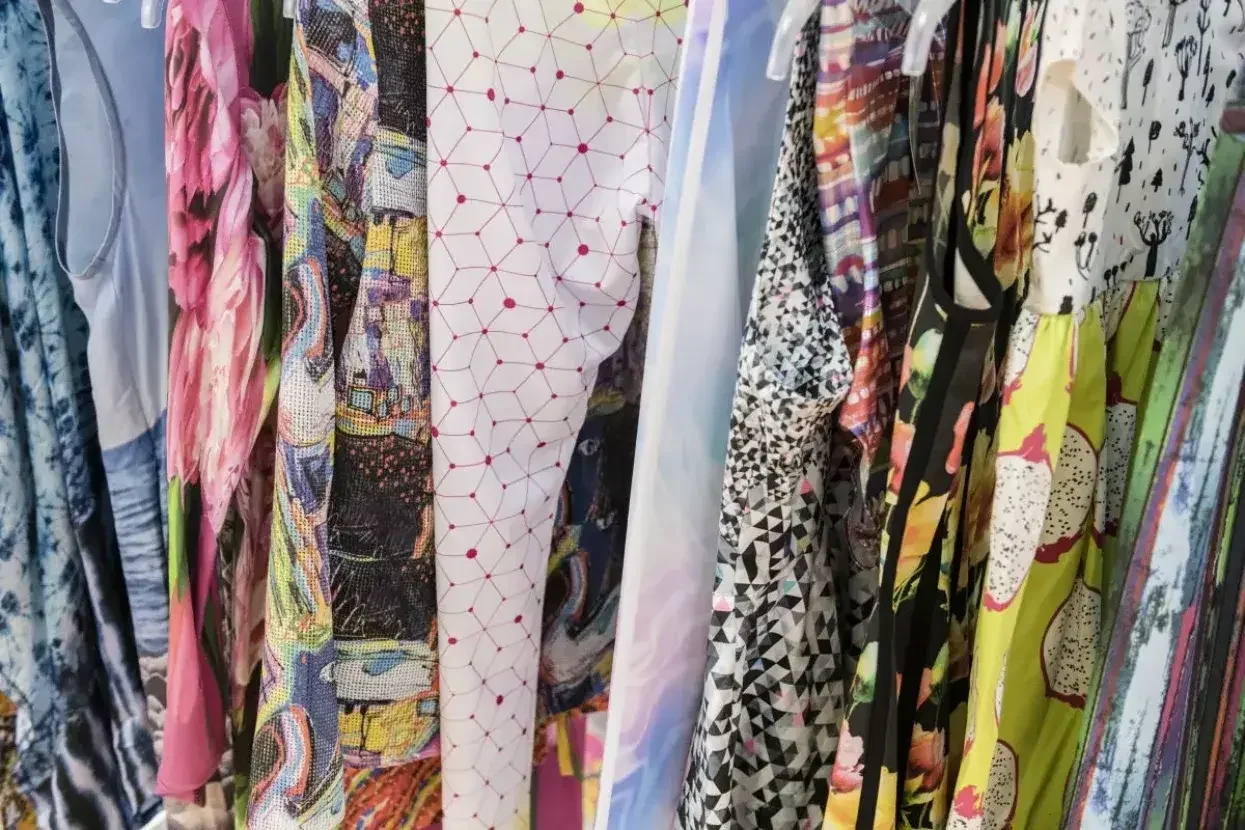
Laurel Brunner discusses new sustainable technologies that can be applied to the textile printing sector.
The history of textile printing is one of innovation, from transferring colours to substrates with carved woodblocks to digitally printed fabrics. Amongst these bespoke options there are a slew of industrial processes that produce all types of lines and curtains through to couture garments and t-shirts. The reversion to technologies that enable us to have custom interiors and clothes is now creating all kinds of opportunities for new businesses that is generally driven by e-commerce.
Digital press and colourant innovations are beginning to seriously disrupt the textile business. This is a positive thing because conventional textile production is a resource intensive manufacturing process. FESPA research proposes that this market is worth $165 billion. Over 30 billion square metres of textiles are printed globally, mostly in China and India which is unsurprising. As populations continue to grow and incomes increase, we can expect more and more textile opportunities. This is the reason why graphics industry manufacturers are so eager to get involved in the sector.
Textile printing was a big feature at FESPA 2018 in Berlin. EFI has had its eye on this sector for many years and via its purchase of Reggiani some years ago it now has over 60% of direct-to-garment and apparel market. Approximately 60% of this is garments with interiors (furnishings) and industrial textile printing accounts for the balance. At FESPA 2018 EFI launched a textile pigment ink technology for direct to textile printing.
The new process features inline polymerisation and uses less energy and water to produce a print very quickly. The printed fabrics need no washing or steaming and EFI states that the process works on a vast range of fibres.
We can expect more similar innovations in the sector as the market for bespoke textiles and clothes continues to grow. HP has its sights on the textile printing opportunity and Mimaki is a well-established player in this part of the market.
Whether we should expect the printing community to embrace this technology or whether the fashion industry will get there first it is too early to say. Epson has seen the design community embrace inhouse production. The shift towards even faster fashion suggests there could be opportunities for digital press manufacturers to capture a whole new market, one that operates far from conventional print.
Source: This article was produced by the Verdigris project, an industry initiative intended to raise awareness of print’s positive environmental impact. This commentary helps printing companies keep up to date with environmental standards, and how environmentally friendly business management can help improve their bottom lines. Verdigris is supported by the following companies: Agfa Graphics, Spindrift.click, EFI, FESPA, HP, Kodak, Kornit Digital, Ricoh, Splash PR, Unity Publishing and Xeikon.